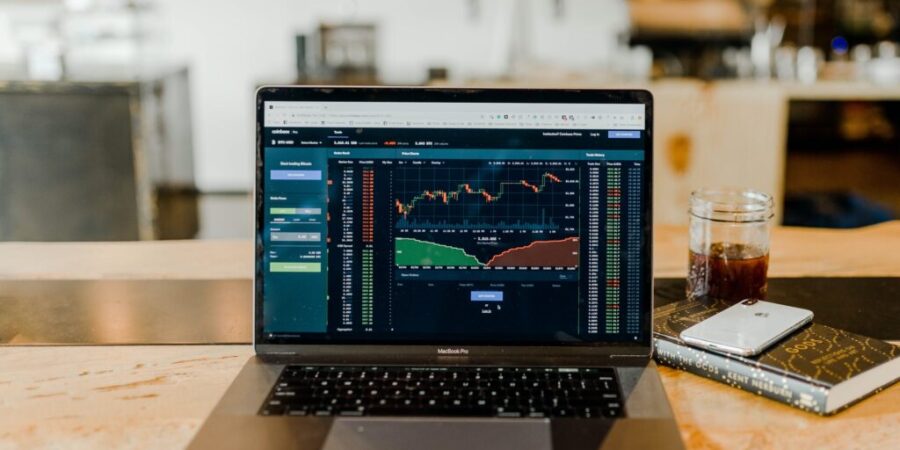Top 5 Mistakes Made By Investors While Picking a Golden Visa Fund (Number 5 will surprise you)
Since the beginning of 2019, the fund investment route for the Portuguese Golden Visa is gaining momentum and is fast becoming a favorite for both investment migration advisors, lawyers, and wealth managers. For the uninitiated, the fund investment route allows the investor to invest 350.000€ to a venture capital fund in Portugal in order to qualify for the wildly popular Portuguese Golden Visa program.
The reason investors started preferring the fund route is quite easy to understand as well:
- No transaction costs when compared to real estate (No notary fees, no title deed transfer taxes). These add up quite fast and can result in a 10% transactional loss on entry – which is huge!
- Extremely tax-efficient investments, the dividends have an effective tax rate of 0%. Investors from high tax jurisdictions usually lose their minds over this advantage.
- Diversification. You can diversify between Golden Visa funds and the funds you invest in are able to diversify between companies they invest in.
When an investment becomes too attractive on the fundamentals, it’s easy to make mistakes. So we put together the top five mistakes we saw clients incline towards while picking a Golden Visa fund for themselves. Also, for the sake of clarity when we are talking about a “Golden Visa Fund” we are simply referring to funds that declare more than 50% of their investors apply for the Golden Visa and the Portuguese Golden Visa program is their main source of fundraising.
So, here are the top five easy to make mistakes we compiled based on our experience derived from a total of 200 Portuguese Golden Visa fund investments.
1. Not knowing who is responsible for what in the Golden Visa fund you are investing in.
It’s extremely important to make sure who you are dealing with while making your investment as there are two types of eligible Golden Visa funds in the market. One is where a CMVM (Portuguese Markets accredited asset manager is handling everything including fundraising, cash deployment, and strategy for the Golden Visa fund. In most cases, however, the funds are advised by separate entities with backgrounds on specific types of investments who handle the strategies. At the end of the day, you need to keep in mind the asset manager is the official responsible party. Please refer to the Private Equity and Venture Capital webpage of the CMVM for a full list of entities licensed for managing PE and VC funds. Keep in mind some asset management companies are also licensed for the job and are included in a different section of the CMVM webpage.
For convenience purposes, let’s take a look at what a Golden Visa fund advisor does as well. They are usually international players who bring into play unique insights and strategies to the table in order to make sure the fund is able to perform in the area of operations picked. Let’s look at two examples. We are keeping the list of responsibilities tight to make the exercise easy to digest. The responsibilities that need to be handled are the following: Fundraising, Investment Deployment, Investment Management, Investment Strategy, Reporting, and Compliance.
Golden Visa Fund A:
The asset manager, the regulated entity is solely focused on reporting and compliance and the fund advisor is providing the necessary personnel in order to create a stronger Golden Visa fund. In this case, the fund advisor is an international retail investment expert who is bringing into play their know-how in the industry as well as their fundraising and deal sourcing expertise. In this case we need to question each party’s ability to do their part and make sure the relevant teams are in place. It’s better to question the advisor’s track record more intensely in this kind of set-up and make sure the asset manager is more legal/compliance-focused in terms of their team. Responsibilities Fundraising Investment Deployment Investment Management Investment Strategy Reporting* Compliance* Who Does it? Advisor Advisor Advisor Advisor Manager Manager
*Can only be done by the manager.
Golden Visa Fund B:
This is another type of Golden Visa fund where the entirety of functions is performed by the regulated entity. In this example, the fund is a technology fund managed by experts exclusively working in the tech industry. In this case, obviously, we need to better question the expertise of the regulated entity in the strategy, deal sourcing, and execution side. We are afforded additional luxuries in this type of fund where the regulated entity is also skilled in the investment area as sometimes they have amazing virtual data rooms where you can dissect their previous investments in order to make sure they have what it takes to make sound and lucrative investments. Please note however some such funds set up advisory boards to support their decision-making even though the advisory board is never involved in the day-to-day of the fund. Responsibilities Fundraising Investment Deployment Investment Management Investment Strategy Reporting* Compliance* Who Does it? Manager Manager Manager Manager Manager Manager
*Can only be done by the manager.
To sum up, get to know the players and what they can contribute to the team. However, keep in mind at all times that the regulated entities are the “guys with the button”, meaning it’s them who will take the shot when the time comes to make the investment or liquidate it.
2. Getting overwhelmed while dissecting tiny details in terms of costs and missing the big picture.
Yes, fund costs are important and it’s important to know what is paid inside and on top of your payment. However, these can quickly drain your energy and we’d recommend doing this last while most investors do this first. What we’d like to focus in terms of costs, is what the money is getting you and how you can read between the lines.
In a nutshell, the burden of costs is crucial for a fund’s smooth and efficient operation, it shouldn’t be one of the decisive factors when choosing an investment. The costs of managing a fund include CMVM supervision fee, custodian bank fee, audit & legal fees, management fee, and in some cases a subscription fee. These fees are calculated based on a target fund size and help portray the operational effectiveness. There has been widespread information sharing across forums, where potential and actual investors debate such costs. Before taking the trip down the rabbit hole of comparing the custodian bank fees that usually vary between 0.01% and 0.1%, we recommend looking into some fundamentals. Here are our top three focus issues:
A. How does the fund advisor/manager make their money?
This should be apparent from the get-go and it’d be the first thing I’d ask them. If an advisor is claiming they are in it for only a %1 management annual fee, it’s unlikely they would be able to field a solid team to handle your investment. In the worst case, they’d be stacking costs and their profit on the SPV’s and it’ll be very hard for the fund to get full fiscal efficiency. Moreover, advisors/managers focusing on exit are much more attractive for investors. However, always check what these numbers add up to. A performance free of %20 over profits in a fund that got from 10 million investment size to 15 million at liquidation (massive achievement!) is only 1.000.000€’s for the trouble of doing the heavy lifting for 5-6 years. There is no way this would cover the costs unless the advising/managing entity has a huge number of funds that would be this successful.
The moral of the story here is this, if you can’t see where they are getting paid, you are paying for it without knowing it.
B.What you pay is what you get
Suppose an advisor is charging 1% to the fund yearly for their management fee. Instead of declaring this is higher than the market and disqualifying them what we need to look at is what they are putting on the table in exchange for this fee. They need to present a bullet-proof track record, a financial team of diverse backgrounds, and cut-throat fundraising skills in order to be worth the money. However, if a team is charging a small fee here and they are claiming to be employing experts in the area we should always take this with a grain of salt. We can quote one of the Golden Visa fund advisors on the markets on this one: “If you pay candies, you can only employ babies.”
If a fund is charging top-of-the-market rates, it’s no reason to disqualify them. It’s simply important to make sure you are getting a top-of-the-market service in return.
C.Missing the big picture:
When Golden Visa investors pay too much attention to these specific costs, they refrain from deep-diving into more vital aspects of a fund, such as the investment strategy and capital structure and the team behind the investment. These characteristics should be the core of a decision and help assess whether an investment fits the investor. In simple terms, the investment strategy explains how the fund advisors will generate returns and includes information on tactics such as the type of asset class, the geographic location, when to enter and exit an investment, etc. On the other hand, capital structure refers to how a fund finances its investments (such as equity, mezzanine, debt, etc.) and illustrates which investor’s return is senior to the other (if the fund structure has more than one share class).
3.Trusting the sales pitch
As the market becomes increasingly competitive, fund advisors’ sales teams develop more attractive methods to pitch their products. Investors shouldn’t entirely trust the sales pitch and make sure they do their own research. Although the sales pitch is generally based on data and how the fund’s investment strategy or other qualities distinguishes them from the competition, these qualities might exist elsewhere. Even though the emotional side to investment is significant, it is arguably more important to look at the hard facts when making an investment decision and not be misled by a persuasive sales pitch.
Keep in mind, for the funds, a critical success factor is how much investment they can attract and it’s becoming harder and harder due to new players jumping into the fray.
Nowadays, all fund advisors promote their team’s experience and track record repeatedly. While both these attributes increase an investor’s trust, they shouldn’t be enough to reach an investment decision. Experience is relative and is only relevant if it aligns with the investment strategy proposed. For example, a Private Equity team may have experience and a solid track record in growing companies, however, you should probably question their expertise if they intend to create a fund that is aimed at restructuring companies. Another suitable example to question would be if a fund advisor has a track record in investing in yielding commercial real estate assets and suddenly decided to create a fund aimed at residential developments without partnering with a developer.
Finally, another elephant in the room for cross-border investments is to question the motivation of 3rd party service provides who are acting as intermediaries. It makes sense for the investors to hire experts but it’s extremely important to make sure the interests are aligned on paper. Some intermediaries are charging the investor a consulting fee claiming they get it to remain “independent” but also go back and charge the fund for a “placement fee”. It’s best to get everything on paper and let the consulting company decide between charging the investor or the fund. When both happen, it’s simply blatant profit maximization at the expense of the investor. However, we appreciate the fact that some funds might be inclined towards paying higher placement fees in exchange for not keeping sales and marketing teams in-house. Handing out bigger placement fees is not exploiting the investor if it’s done as a trade-off from keeping sales and marketing staff internally.
4. Assuming the fund’s investment strategy is future-proof.
When investors inquire about a fund, they are generally faced with the typical ‘this is the market, and this is where we believe it will head and therefore this is our investment strategy’ speech. While this may be true today, it might not be the case 12 months from now.
Current economic conditions may differ from the fund’s investment strategy based on research before the fund started to fundraise. Don’t forget that the fundraising period (the subscription period) ranges between 15-30 months long, depending on the maturity of the fund. Before fundraising, what was considered a distressed asset class may no longer provide the added benefit 12 months into the subscription period. Perhaps the market did not go in the direction the fund advisors thought it would. What is their pivot strategy? Where will they deploy the cash that was raised at the last part of the subscription period now that their initial strategy is not that lucrative or inaccessible entirely?
Potential investors should question the relevance of research and compare the investment strategy to today’s economic environment. If there is an opportunity in the market today, it might not exist six months from now or even tomorrow.
An investor should understand how the market has shifted and whether the fund’s investment strategy has changed accordingly.
We saved the most important aspect of questioning the strategy of a fund: Learning what their theoretical “Black Swan” event is (We recommend reading the amazing book by Nassim Nicholas Taleb). We’ve unfortunately gotten acquainted with the term black swan which roughly means “an unpredictable or unforeseen event, typically one with extreme consequences.” This shows the strategic depth by which the advisor/manager is handling their investors’ money and, in our opinion, it’s a differentiating factor between people who would be able to protect and grow the assets under their management. Due to aggressive quantitative easing, financial markets are having the time of their lives even though global supply chains are crippled. Everyone feels like they are Lebron James (Or Cristiano Ronaldo due to the context of the article) but it’s extremely important to know if the strategy minds of the funds are planning for other disruptive and unforeseen events that may happen before the end of the decade.
Since dissecting a funds’ strategy is a very complicated issue, please refer to the below examples of strategy criticism and example of solutions to these issues.
Strategic Claim Criticism Solution We're diversified since we invest in different assets class of the same type (i.e., commercial and residential real estate). It's all in the same industry (i.e., real estate) and there is no protection against industry crippling events such as regulation, fluctuation in FDI etc. Subscribing to a fund that invests in an entirely different industry (tech vs real estate) or investing across funds. Our asset class is extremely attractive since it's undervalued currently and there is a huge appreciation potential. This can't be a secret to the world, soon very aggressive global players uninterested by the GV program will move in and deal sourcing will be crippled. Making sure the fund has a plan-b in terms of types of investments or making sure they have a solid deal sourcing team that is the go-to choice of sellers. We do not have a black swan event since the public always needs this type of asset. There is a black swan event for everything. Even severely needed services and investments can become inaccessible due to lots of reasons, including natural disasters, crippling regulation, etc. Finding funds who have built-in failsafe plans to invest in and acknowledge rather than deny failure scenarios.
5.Limiting their investment options
Most investors interested in the fund route believe that only a handful of funds are eligible for the Golden Visa. While only 3-4 investment funds dominated the market until 2020, the number of Golden Visa eligible funds has exceeded 30. Since Golden Visa eligibility is not a problematic entry barrier to meet, numerous other classical Private Equity and Venture Capital players have entered the market. To put things into perspective, Venture capital funds must invest at least 60% of their capital to companies based and operating in Portugal in order to become an eligible option for the Golden Visa program and must not invest more than 30% in a single asset unless the fund is for qualified investors.
While not all fund advisors will tell you this until you ask them, you can diversify your fund investment into more than one fund. Although minimum investment requirements for funds start as little as €50,000, each investment will generate additional legal costs and could increase the total subscription fee paid over the whole sum. Although the additional costs will reduce your return on investment, it remains the most effective approach for diversifying your risk. There can be creative scenarios in which the investor can create yearly cash-flows via one fund and target a capital appreciation strategy via another. Here’s how one such scenario might look like assuming the investor placed the bare minimum to qualify for the Golden Visa program which is currently 350.000€.
Allocation (EUR) Annual Distribution (EUR) Cap. appreciation (EUR) Total at exit (EUR) IRR (%) Fund A 150,000 0 150,061 300,061 12.25 Fund B 200,000 8,000 (=4.00%) 35,734 283,704 6.00 2022 2023 2024 2025 2026 2027 8,000 EUR 8,000 EUR 8,000 EUR 8,000 EUR 8,000 EUR 543,765 EUR
Summary:
While the fund investment appetite of investors looking to get the Portuguese Golden Visa is increasing, the fact that the market does not have enough transparency is proving to be the biggest barrier.
While the task of evaluating a financial investment in another country may seem daunting at first, if the investors stay focused on the big picture, do their homework and ask the right questions there is no reason for them to miss the mark. Since we believe understanding a subject requires understanding the terminology first, we strongly recommend all aspiring investors to download our comprehensive fund terminology guide by clicking here. If you have further inquiries or questions no matter how small please don’t hesitate to reach out to us via invest@smartcitizenship.com or give us a call at +908503460506 (click here to WhatsApp).




